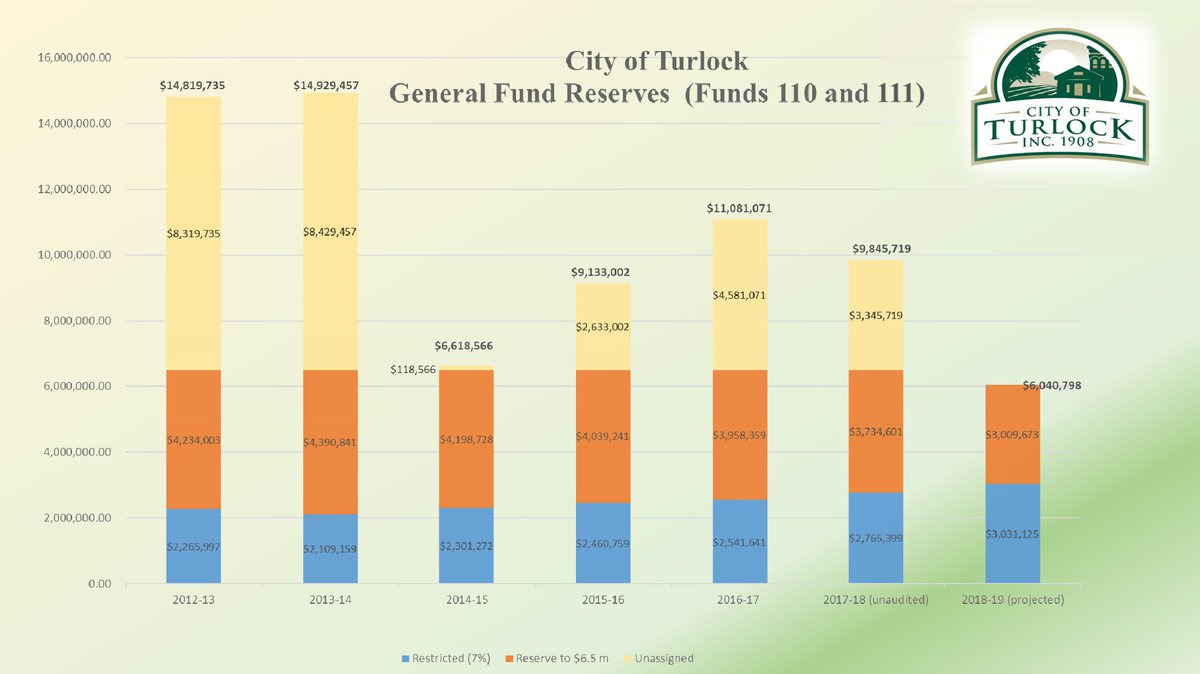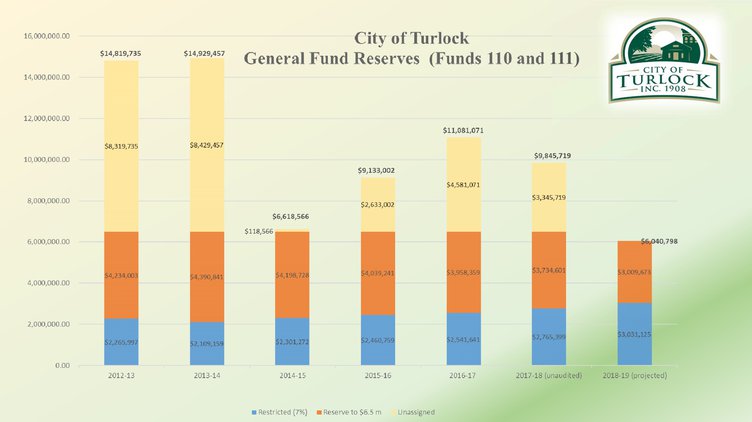The Turlock City Council has some tough decisions to make in the coming months in order to keep the City financially solvent for the next two years.
The Council received a report during a special meeting held Tuesday on the City’s unaudited 2017-18 budget, an update on how 2018-19 is shaping up and what 2019-20 might look like — and the news wasn’t good.
If the City continues in its current deficit spending pattern, the General Fund Reserves will be below $3 million by June 2020. The Turlock Municipal Code mandates that the City maintain at least a 7 percent reserve ($3.027 million). To change the code, the Council would have to hold a public hearing and it would require a 4/5ths vote.
The City’s dwindling reserves are due to lower than anticipated revenues and additional expenditures the previous Council approved without identifying a way to pay for them.
In March 2018, the Turlock City Council voted 4-1 (with then-Council member Amy Bublak dissenting) to hire three additional firefighters in an effort to alleviate the department’s staffing problem. The Council approved spending $72,214 in fiscal year 2017-18 and then an additional $329,688 in 2018-19 to pay for the additional firefighters. This option cost approximately $200,000 more than if the Council had allocated more overtime to the department to fill the minimum staffing needs of the four stations. None of the Council members wanted to consider closing a station.
In April 2018, the Turlock City Council voted 3-1 (with Bublak dissenting and Matthew Jacob absent) to hire four police officers (two in 2018, two in 2019), two dispatchers, one part-time clerical position; convert two Cadets to two part-time clerical positions; and purchase the safety equipment for the additional officers — at a cost of $713,800 in nonbudgeted expenses.
The City took a big hit in sales tax revenue in 2017-18. The adopted budget anticipated a 5 percent increase ($700K) in sales tax and instead there was a decline of 2.44 percent. Sales tax fell short of revenue estimates by over $1.02 million.
Helping to make up for the loss of sales tax was an increase in revenue from property taxes, which came in $612K above estimates, along with higher interest income and other revenue areas, allowing the City to end with 99.5 percent of anticipated revenue.
However, with the over $1.2 million of additional expenditures that were approved by the former City Council and not enough revenue identified to support them, along with the originally adopted deficit of $168K, the General Fund ended with a deficit of over $1.34 million.
The originally adopted 2018-19 budget anticipated a deficit of $68K. Since that time, the amendments to the budget project a deficit of $3.8 million.
Administrative Services Director Kellie Jacobs-Hunter said that it’s hard to predict what sales tax revenue the City will end with as it continues to appear volatile.





